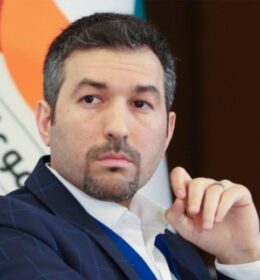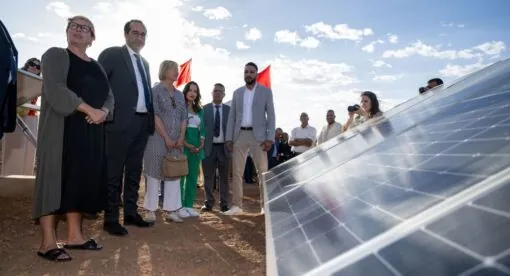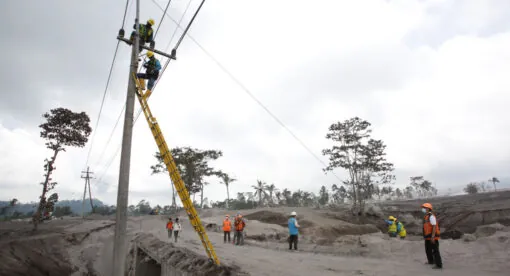Turkey’s defense industry has grown significantly in the past decade, a result of aggressive government policies aimed toward decreasing arms imports and raising the country’s status as an international player. The massive economic and political investment into the Turkish defense sector has come with several challenges, including the current COVID-19 pandemic.
Turkey’s Defense Sector Ambitions
Turkey has been striving to build a national defense industry since the 1970s, but it became particularly focused on this goal with the rise of the Justice and Development Party (AKP) in the early 2000s. The AKP government has had three priorities: achieving defense autarky; increasing Turkish defense industry exports and revenues; and upgrading Turkey’s prestige as a rising power.
Aggressive policies caused the Turkish defense sector to achieve remarkable success in a relatively short period of time, with net sales rising from $1.85 billion in 2006 to around $8.7 billion in 2018. Over the same period, the sector’s exports rose from $487 million to around $2.2 billion. In 2018, Turkey became the 14th-largest defense exporter in the world, a massive difference from 1999, when it was the third-largest importer. That same year, the sector saw the strongest export growth among all Turkish industries, its exports crossed the $2 billion threshold for the first time, and it secured several large arms deals, including orders to deliver 30 combat helicopters and four frigates to Pakistan. Turkey was categorized that year as an “emerging producer” with a goal of amplifying production capabilities in naval, air, land, electronics, and ammunition.
Such status reflects Ankara’s high ambitions in this field. Ismail Demir, the head of the Presidency of Defense Industries, stated that Ankara’s strategic aim is “to make the Turkish defense industry 100% independent by 2053, increase its export capacity to $50 billion, and have at least 10 Turkish defense companies among [the] 100 biggest companies in the world.”
According to SIPRI’s 2019 report released in March 2020, Turkey’s arms imports decreased by 48% between 2015 and 2019 compared to the previous five years, even though the Turkish armed forces have been engaging in more conflicts, both internal (against the Kurdistan Workers’ Party) and external (in Syria and Libya) than before.
The decline is a part of a policy that seeks to minimize weapons imports and maximize the dependence on the indigenous systems. In the past 10 years, Ankara added more indigenous defense systems and weapons to its inventory than ever before, decreasing its dependence on foreign imports and increasing the percentage of local content in its defense procurement from 24% in 2002 to 68.5% in 2016.
Defense companies such as electronics producer ASELSAN and Turkish Aerospace Industries both were on SIPRI’s 2018 list of the top 100 arms-producing companies, and in 2019, five Turkish defense companies were listed in Defense News’ ranking of the top 100 defense companies.

Three months before the World Health Organization declared the coronavirus a pandemic, the Turkish Presidency of Defense Industries released its strategic plan for 2019-2023. The plan aims to increase the Turkish defense sector’s revenues to $26.9 billion, boost exports to $10.2 billion, and meet 75% of the country’s military needs locally in 2023, compared to 65% in 2018.
According to 2019 industry data released by Turkey’s Defense and Aviation Industry Manufacturers Association in April, exports of the sector surged in 2019 by 40.2% to reach $3.1 billion, compared to $2.2 billion in 2018, and increased total sales by 24.2% to $10.9 billion, compared to $8.8 in 2018.
Sustaining a policy that is mainly dependent on ambitious arms exports growth in the long term has come with a growing list of challenges. For instance, while the industry’s export numbers are strong, they come with an accompanying rise in imports, indicating a high dependence on the foreign raw materials and equipment needed to keep the momentum in the production process in the sector. Other challenges include brain drain, the need for new markets and massive investment, political factors, and the depreciation of the local currency. But the overall trajectory of the defense sector, its performance, output, and figures were promising and in line with the government’s high ambitions for the sector.
Coping with COVID-19
The COVID-19 pandemic, which started to spread in Turkey in March 2020 constituted an unexpected and unwelcome development for the defense industry. Seeking to protect their human resources while keeping the work flowing, the country’s defense companies were among the first to take strict measures.
Companies issued statements citing their strict adherence to protective measures such as disinfection, social distancing, mandatory wearing of masks, system shifts for workers, and administrative leave, and some chose to partially or completely suspend work for 14 days. According to Turkish officials, these measures were meant to allow the defense sector to maintain the production process and to permit the defense sector to play a vital role in combating the pandemic.
For example, Mechanical and Chemical Industry Corporation, which produces equipment for the Turkish armed forces shifted its work temporarily to focus on protective gear and medical equipment, with its factories producing 6.5 million masks, 334,825 medical overalls, 33,210 protective glasses, 377,100 surgical gloves, and 41,400 liters of disinfectant per week. Tech company NANOBIZ worked in collaboration with the Presidency of Defense Industries as well as the Technology and Health ministries to produce test kits for the disease. ASELSAN and Baykar cooperated with Arcelik and Biosys to produce Turkey’s first indigenous ventilator. Mass production of the indigenous ventilators started in April, and 5,000 units were reportedly donated to Somalia in May.
But Turkish defense companies also continued to strike new defense deals and deliver systems to clients during this time. On March 23, India agreed to a $2.3 billion deal to build five 45,000-ton fleet support vessels for the Indian Navy in collaboration with Turkish shipyard consortium TAIS. ASELSAN signed agreements with Bahrain, Kazakhstan, and an undisclosed NATO member state for advanced remote-controlled stabilized weapon systems. According to Defense news, ASELSAN is one of the companies whose market value was the least affected by the COVID-19 outbreak.

In line with these agreements, Demir made a surprising statement in which he confirmed that Turkey is still producing and delivering parts for U.S. F-35 jets despite being suspended from the program nearly a year ago over its purchase of the Russian air defense system S-400. The United States was supposed to wind down Turkey’s involvement with the F-35 March, but according to Demir, the work continued even during the pandemic.
While these deals give the impression that the work is not disrupted, the impact of COVID-19 on the defense sector is expected to be felt over the course of the year.
COVID-19’s Impact on Deliveries and Revenues
Although it is hard to accurately assess the scope and magnitude of that impact at this stage, some general speculations can be made on the basis that the world will certainly witness a severe economic crisis, more countries will prefer to shift the money originally dedicated to buying weapons to other sectors, and defense expenditures are expected to decrease all over the world.

Turkey’s defense goals for 2023 were lofty even before the COVID-19 outbreak. The pandemic will only exacerbate doubts about the sector’s ability to achieve these aims as work slows down, revenues decrease, and projects and deliveries are delayed.
The IMF expects the Turkish economy to contract 5% in 2020 as a result of the pandemic. Although the government took measures worth $28.7 billion, including the “Economic Stability Shield package,” to ease the economic impact of the coronavirus and protect the economy, the pressure on the lira is set to increase, the tourism sector will be hit, and the export sector will suffer. These developments will deprive the country of foreign currency that could have helped shore up the Turkish economy, which could ripple out to the defense sector, forcing the government to aim for a smaller defense budget and/or postpone some projects. This may include the postponement of parts of an ambitious procurement plan announced in January that included the addition of several aerial, naval, and land defense systems to Turkish forces’ inventory this year.

As the world economy enters into a global recession, more assets shift from the defense sector to the health sector, and the contracting and procurement pace slows, Turkey’s defense sector has shown signs of a slowdown. According to figures from the Turkish Exporters Assembly, the sector’s exports declined by 21.5% during the first three months of the year compared with the same period in 2019. The figures show the sector actually started the year with a 5% increase in exports in January and February, followed by a 49.8% decrease in March and an 18.5% decrease in April.
Although the pandemic constitutes an unexpected challenge to the defense sector, some Turkish officials believe that it can offer new opportunities too when it comes to strengthening its domestic role and international reputation. Defense companies will have the chance now to employ multi-use technologies and work on partnerships with other national companies to produce indigenous systems that go beyond their typical defense products.
However, it is premature to make big assumptions at this stage. The sector needs to overcome the impact of the expected setback in its revenues first and invest further in its human resources during this period, which will increase costs. How Turkey’s defense production sector addresses this rising cost of doing business will determine its future growth in the years to come.
Dr. Ali Bakeer is a political analyst who specializes in geopolitical and security trends in the Middle East with a specific focus on Turkey, Iran, and the Arab Gulf states. Dr. Bakeer has over a decade of experience as a consultant – working with senior officials, decision makers, and other stakeholders for governmental, non-governmental, and private sector institutions across the region. He Tweets at @AliBakeer.
The views expressed in this article are those of the author and not an official policy or position of the Newlines Institute.






